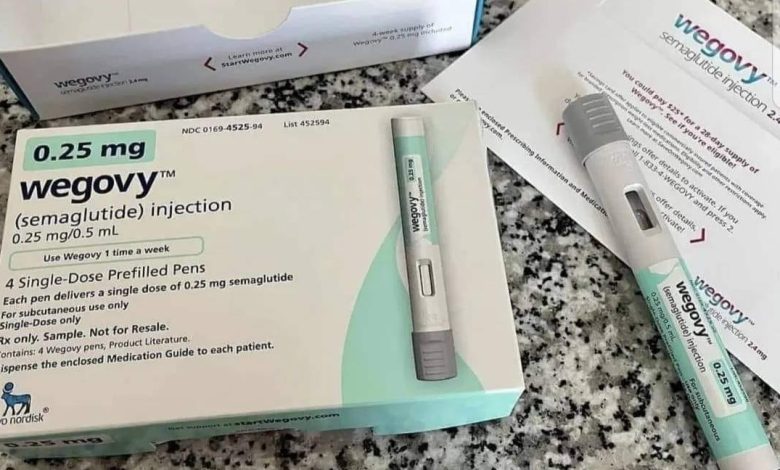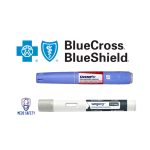What is the Cost of Wegovy (semaglutide)?

Wegovy, a groundbreaking once-weekly prescription medication, has emerged as a beacon of hope for individuals grappling with obesity or overweight issues. A recent study presented at the annual meeting of the European Society of Cardiology (ESC) also suggests that Wegovy might also hold promise for patients battling heart failure.
While its efficacy in weight management has garnered attention, the cost of Wegovy can be a significant concern for prospective users.
This article delves into the intricacies of Wegovy’s pricing, potential savings options, insurance coverage, and alternative medications to provide a comprehensive understanding of the financial aspects associated with this innovative drug.
Wegovy Cost Breakdown
The cost of Wegovy hinges on various factors, primarily revolving around insurance coverage and the chosen pharmacy. Each Wegovy package encompasses four pre-filled pens, equating to a weekly dose. Without insurance, the list price of Wegovy stands at a substantial $1,349.02 per package. This translates to $269.80 per week or a staggering $16,188.24 annually. However, avenues exist to mitigate this financial burden, even without insurance.
Saving Strategies for Wegovy
Several strategies can help individuals reduce the cost of Wegovy. Websites like GoodRx compile Wegovy coupons, offering discounts ranging from 7-34% at popular pharmacies such as Walgreens, CVS, and Walmart. It’s noteworthy that as of now, there is no generic version of Wegovy available.
Novo Nordisk, the manufacturer of Wegovy, extends a lifeline through its WeGoTogether program. This initiative allows individuals with private or commercial insurance and prescription drug coverage to obtain a 28-day supply of Wegovy for as little as $0. For those without insurance coverage, the savings offer permits up to $500 in savings for a 28-day supply.
Insurance Coverage for Wegovy
The pivotal question of whether Wegovy is covered by insurance depends on several variables, including the specific insurance plan, health history, and underlying medical conditions. Since its approval by the U.S. Food and Drug Administration (FDA) in 2022, Wegovy’s inclusion in insurance plans is contingent upon the plan’s drug formulary. Individuals are advised to scrutinize their plan’s formulary to ascertain Wegovy’s coverage. In cases where Wegovy is not listed, a healthcare provider can intervene by drafting an appeal letter seeking an exception from the insurance company.
It’s essential to note that Medicare prescription drug plans generally do not cover weight loss drugs or medications for obesity. However, individual plans may vary, and a thorough review of the specific plan’s prescription drug coverage is recommended.
For veterans under the care of the Veterans Affairs (VA) system, Wegovy may be accessible through the MOVE! Weight Management Program.
Wegovy and Medicaid Coverage
The coverage landscape for Wegovy under Medicaid programs is evolving. As a recently approved weight loss medication, not all state Medicaid programs cover Wegovy at the time of writing. Prospective users are encouraged to check their plan’s formulary or contact their state Medicaid agency to determine Wegovy’s coverage status. In cases where Medicaid covers Wegovy, prior authorization may be a prerequisite.
Wegovy vs. Ozempic: Cost Considerations
In scenarios where Wegovy proves financially challenging, alternative options such as Ozempic become relevant. Both Wegovy and Ozempic share the same active ingredient, semaglutide. While Ozempic is primarily approved for treating type 2 diabetes, healthcare providers may opt to prescribe it off-label for weight loss. However, Wegovy stands out for chronic weight management, boasting higher maximum doses and demonstrating superior efficacy in weight loss during clinical trials.
Despite their efficacy, both medications lack generic versions, contributing to their relatively high retail prices. Novo Nordisk, the manufacturer of both drugs, offers savings programs to alleviate these costs.
Ozempic and Novo Nordisk Patient Assistance Program (PAP)
For individuals with type 2 diabetes, Ozempic may present a viable alternative to Wegovy. The Novo Nordisk Patient Assistance Program (PAP) offers Ozempic and other diabetes medications for free to eligible individuals. Qualification criteria include U.S. citizenship or legal residency, a total household income at or below 400% of the federal poverty line, and the absence of private insurance or health coverage through a federal, state, or government program.
Additionally, Novo Nordisk provides an Ozempic Savings Card, potentially reducing the cost by $150 for a one-month prescription, $300 for a two-month prescription, and $450 for a three-month prescription. Eligibility requirements mirror those of the Wegovy Savings Card.
How to Obtain Wegovy
Being a prescription medication, acquiring Wegovy necessitates a doctor’s prescription. Individuals can schedule appointments with healthcare providers to explore Wegovy as a viable option for their weight management journey.
Alternatively, many 12-month Body Program presents another avenue to access Wegovy. This program combines the prescription of Wegovy with personalized coaching over 365 days. The program aims for an average weight loss of 15%, with participants receiving support from dedicated health coaches and following evidence-backed weight loss curriculum.
Wegovy Coupons for Cost Reduction
Given Wegovy’s status as a brand name drug with associated costs, leveraging coupons becomes a practical approach for cost reduction. Platforms like SingleCare and GoodRx offer Wegovy coupons, allowing individuals to explore discounted prices at local pharmacies. Additionally, Novo Nordisk contributes to the cost mitigation effort through the Wegovy Savings Card, tailored for individuals with health insurance. This card facilitates potential savings of up to $225 for a 28-day supply and up to $500 for those without insurance coverage.
Understanding Wegovy’s Mechanism
Wegovy works via a sophisticated mechanism rooted in its active ingredient, semaglutide, and its role as a glucagon-like peptide-1 (GLP-1) receptor agonist. Understanding how Wegovy interacts with the body sheds light on its efficacy in promoting weight loss and its potential benefits beyond mere body mass reduction.
At the core of Wegovy’s mechanism is its mimicry of GLP-1, a hormone naturally produced in the human body. GLP-1 is known for its multifaceted roles, including the regulation of glucose metabolism and insulin secretion. However, in the context of Wegovy, the focus lies on its impact on appetite regulation and weight management.
GLP-1 receptors are present in various tissues throughout the body, including the brain. By acting as a GLP-1 receptor agonist, Wegovy engages these receptors, primarily located in the central nervous system. This interaction influences the brain’s reward center, a complex network that plays a crucial role in regulating appetite and food intake.
One of the key effects of Wegovy is its ability to slow down digestion and gastric emptying. This means that the process of breaking down food and moving it through the digestive system is delayed. As a result, individuals taking Wegovy experience an extended feeling of fullness after eating. This prolonged sense of satiety is instrumental in curbing appetite, ultimately leading to a reduction in overall caloric intake.
Clinical trials conducted over an extensive period of 68 weeks have provided compelling evidence of Wegovy’s efficacy. Participants in these trials, comprising individuals struggling with obesity, demonstrated a remarkable average weight loss of nearly 15% of their initial body weight. This significant reduction underscores the potency of Wegovy in addressing obesity, a condition associated with numerous health risks and complications.
Beyond the evident weight loss, participants in these trials reported additional health benefits. Reductions in cardiovascular risk factors, such as improved blood pressure and lipid profiles, were observed. The positive impact on cardiovascular health is particularly noteworthy, as obesity is often linked to an increased risk of heart disease and related complications. The comprehensive improvement in cardiovascular risk markers suggests that Wegovy may contribute to a broader spectrum of health benefits beyond its primary role in weight management.
Furthermore, participants noted enhancements in physical functioning, indicating that Wegovy’s effects extend beyond mere changes in body composition. This aspect is crucial in addressing the holistic well-being of individuals grappling with obesity. Improved physical functioning can have a cascading effect, influencing aspects such as mobility, exercise tolerance, and overall quality of life.
While Wegovy’s mechanism primarily centers around its influence on appetite regulation through the GLP-1 pathway, the medication’s broader impact suggests a systemic modulation of metabolic and cardiovascular functions. The intricate interplay between Wegovy, the central nervous system, and various peripheral tissues underscores the complexity of obesity as a multifaceted condition requiring a comprehensive therapeutic approach.
It is important to note that, like any medication, Wegovy is not without potential side effects. Nausea, vomiting, and diarrhea are among the reported adverse events. However, the overall risk-benefit profile, as indicated by the substantial weight loss and associated health improvements observed in clinical trials, positions Wegovy as a promising intervention for individuals facing challenges in managing obesity.
Conclusion
In conclusion, Wegovy’s cost considerations are multifaceted, encompassing insurance coverage, savings programs, alternative medications, and coupon utilization. As individuals navigate the landscape of weight management medications, understanding these financial aspects becomes instrumental in making informed decisions tailored to their specific circumstances.





